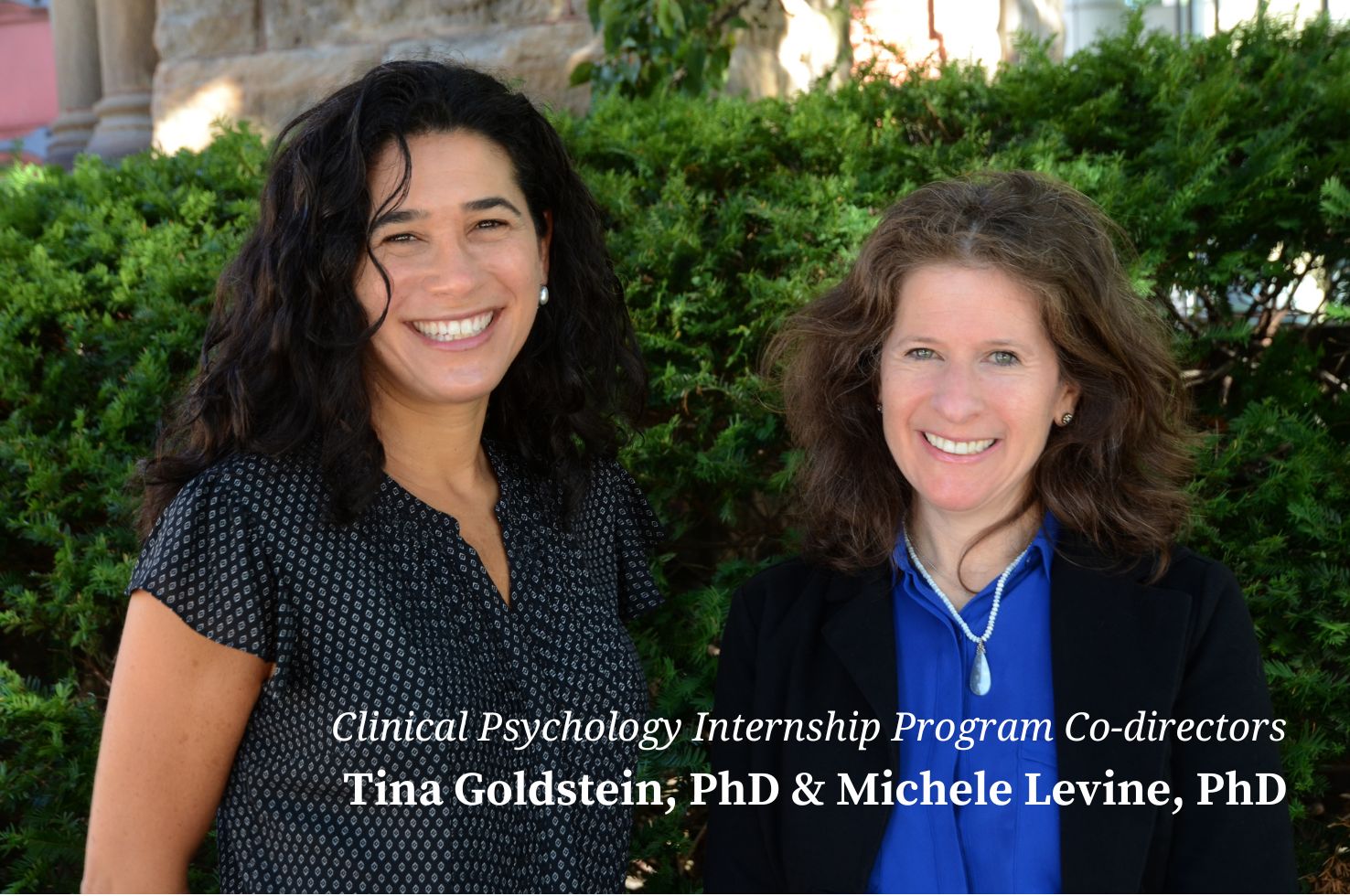Spotlight: The UPMC Western Psychiatric Hospital Clinical Psychology Internship

The Department of Psychiatry and UPMC Western Psychiatric Hospital (WPH) Predoctoral Clinical Psychology Internship Program provides a unique training experience, in a broad range of clinical settings, for clinical psychology graduate students pursuing a doctoral degree. The internship program is accredited by the American Psychological Association (APA) and is a member of the Academy of Psychological Clinical Science.
We spoke with co-directors Michele Levine, PhD (Associate Professor of Psychiatry, Psychology, and Obstetrics, Gynecology, and Reproductive Sciences), and Tina Goldstein, PhD (Pittsburgh Foundation Endowed Professor in Psychiatry Research and Associate Professor of Psychiatry and Psychology) about what makes the program so special:
Tailored, Individualized Training
The WPH Clinical Psychology Internship offers a uniquely flexible structure. “We joke that this program is like a ‘build your own adventure,’” says Dr. Goldstein. “A trainee comes with their own particular skillset, and we craft a training year tailored to their interests and goals.”
Kevin Clancy, PhD, now a research fellow in the Anxiety and Traumatic Stress Disorders Laboratory at the McLean Hospital Center for Depression, Anxiety, and Stress Research, found the individualized program structure to be a particularly beneficial experience: “Coming into internship, I had a seemingly disparate range of clinical and research interests, from free, community-based mental health care to advanced brain stimulation techniques. I thought internship would be a year where I would be forced to reign these interests in, but I couldn’t have been more wrong,” he said.
“I was given the opportunity to create training experiences with interventional psychiatry techniques, cultural and linguistic adaptations of evidence-based treatments, and implementation science in a community-based medical clinic. This breadth of experiences, and the encouragement I received from the training directors to pursue each one, demonstrated to me the true meaning of interdisciplinary care and has made a lasting impact on my career development as a clinical scientist.”
A Home in One of the Nation’s Largest Departments of Psychiatry
Clinical psychology interns have access to an exceptionally broad range of clinical settings in which to meet their training goals. “The program doesn’t have tracks, which is different from many other programs,” says Dr. Goldstein.
“While other clinical internships may have trainees in one or two clinics, our interns are really encouraged to work in a wide range of settings including the Western Psychiatric Hospital emergency room and inpatient units, UPMC medical and specialty hospitals, as well as community-based care and intensive outpatient clinics,” Dr. Levine added.
The Diversity, Inclusivity, Cultural Humility, and Equity (DICE) Committee
Among the relatively few required experiences in the WPH psychology internship is training in cultural humility. Overseeing this component is the DICE committee, which ensures the ongoing commitment of the program to furthering cultural humility and social justice advocacy for trainees and faculty. “The DICE committee has become a trusted friend of the program,” said Dr. Levine. “They are integral to our training mission, helping all of us grow and learn. Not just for the interns, but for everyone associated with the internship.”
The program’s cultural humility training was designed to incorporate a continual process of assessment and adjustment. On an ongoing basis, the program leaders solicit feedback from trainees and faculty, and apply clinical science and evidence-based techniques to the evaluation of the program.
Sarah Pedersen, PhD (Associate Professor of Psychiatry and Psychology), chair of the DICE committee, comments, “We are deeply invested in the WPH clinical psychology internship as a space where faculty and trainees can have thought-provoking discussions and co-develop action items that cultivate cultural comfort and increase equity in mental health care.”
Postdoctoral Research Opportunities
A major focus of the psychology internship is ensuring interns have plenty of opportunities to build collaborative scientific relationships. The Department of Psychiatry has eight federally sponsored postdoctoral training programs that enable interns to expand their training.
“In addition to the great clinical training, the internship provided many opportunities to learn about research being conducted in the department,” said Vanessa Brown, PhD (Assistant Professor of Psychiatry), a former intern and subsequent postdoctoral scholar on the National Institute of Mental Health-funded Clinical and Translational Research Training in Geriatric Mental Health T32. “The ability to stay on for a postdoctoral fellowship meant that I could start research projects during my internship and build on those research directions full time during postdoc.”
Another former intern Mary Woody, PhD (Assistant Professor of Psychiatry) completed the National Institute of Mental Health-funded Clinical Training for Psychologists T32: “Participating in a T32 fellowship was pivotal in my career development, in part because it enabled me the unique opportunity to build a mentorship team of two or three senior clinical scientists. This diversity in mentorship allowed me to participate in training activities and research projects that spanned several diagnostic categories and stages of development, and to focus on both etiology and treatment,” she said. “These opportunities left me poised for success in obtaining an NIMH Career Development Award, which integrated and expanded my postdoctoral training experiences into a clear path to independence as an early-career faculty member.”
A Lasting Community
“We had a reunion last year, and many psychology internship alumni talked about the importance of their clinical year and sense of being part of the program of forever,” says Dr. Levine.
“So many people in the Department of Psychiatry care deeply about clinical science,” adds Dr. Goldstein. “Once you are a part of this community, you are part of it for life.”
Thank you for talking with us, Dr. Goldstein and Dr. Levine!
